La Suède a reçu cette semaine sa première livraison d’éthanol brésilien certifié "durable". Les 115 millions de litres importés cette semaine répondent en effet à un certain nombre de critères sociaux et environnementaux.
4 producteurs brésiliens, Alcoeste, Guarani, Coeste et NovAmerica ont accepté d’être contrôlés par un organisme indépendant chargé de vérifier le bon respect de critères mis en oeuvre par le groupe Sekab.
Ces critères visent notamment à garantir la non déforestation de la végétation en général et de celle de l’Amazonie en particulier, le non recours au travail des enfants et le respect de salaires minimums.
Le bénéfice de l’éthanol en matière d’émissions de CO2 tout au long de la chaîne de production et de distribution est également évalué. Au moins 30% de la production doit s’effectuer mécaniquement. Cette proportion devra s’élever à 100% d’ici 2014. Les critères imposés devraient permettre de réduire de 85% les émissions de CO2 produites lors de la production et du transport, estime Sekab. Selon le vice-président de la société, Anders Fredriksson, cité par l’AFP, "l’éthanol brésilien est, de loin, le biocarburant qui garantit la plus importante réduction des émissions de CO2".
Les livraisons vers la Suède doivent se poursuivre jusqu’en mars 2009 et alimenter à partir d’août prochain quelques 100 000 propriétaires suédois de véhicules E85.
L’éthanol "durable" représente un coût de 5 à 10% supérieur à l’alcool de canne à sucre produit habituellement au Brésil.
Lire aussi : Sekab, l’éthanol estampillé durable




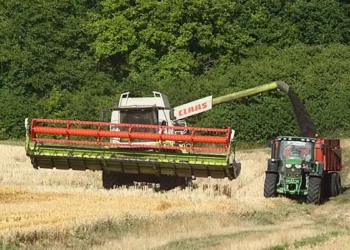
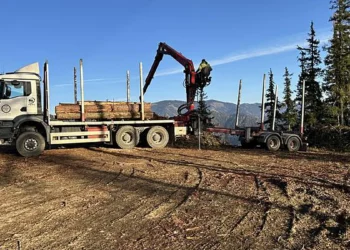
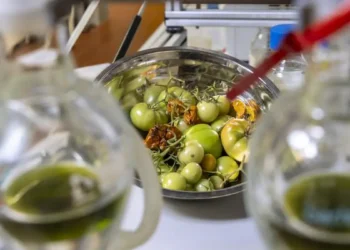
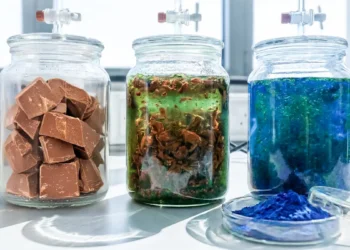
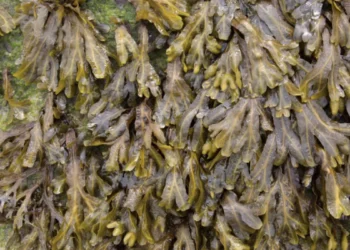
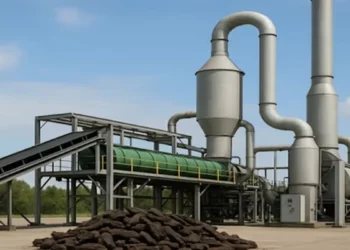
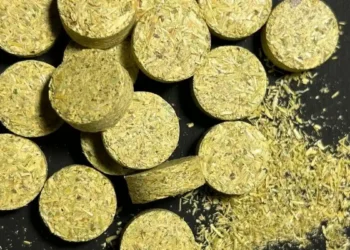









« Au moins 30% de la production doit s’effectuer mécaniquement. Cette proportion devra s’élever à 100% d’ici 2014. »Pourquoi cette exigence? Au Brésil la main d’oeuvre étant très peu chère (SMIC autour de 100$), les exploitations de cannes à sucre tournent grace aux ouvriers agricoles et non grace aux machines. Ce mode d’exploitation donne du travail à de nombreux travailleurs et cela ne produit pas de CO2 contrairement à une exploitation 100% mécanisée. Où est l’écologie dans cette exigence????
Compte-tenu de la pénibilité de la coupe de la canne à la main à la machette, une exploitation à 100% mécanisée d’ici 2014 réduira ce dur labeur à main d’homme, voisin de l’esclavagisme à ses pires moments. Certes, il faut espérer que les pauvres bougres pourront trouver d’autres travaux plus valorisants et moins pénibles, comme conducteurs d’engins de coupe, de chargeurs ou de transporteurs, ou autres jobs connexes…Comptons sur cette migration des labeurs s’éloignant de la pénibilité !…d’ici 2014 !C’est donc une bonne perspective et un bon challenge. L’écologie ne vaut pas que pour la Terre mais aussi pour ceux qui y vivent, êtres vivants, dont les Humains….! cqfdA+ Salutations Guydegif(91)
Dear Sir,I will take this opportunity to add some useful words about Brazilian bio-fuels in Brazil. As rising food prices continue to threaten food security around the world, Brazilian ethanol is one obvious solution being largely ignored. Brazil set up its efficient fuel alternative program in the 70s, when the first oil crisis hit the world. Now Brazilians drive cars moved by ethanol or gasoline mixed in any proportion. And since long ago gasoline in Brazil is not pure, but blended with 25% ethanol, resulting that internal consumption of ethanol in the country is already superior to gasoline’s. Ethanol in Brazil is already much cheaper than gasoline at current international oil prices. Brazilian ethanol is produced from sugarcane without any governmental subsidies and the fuel has a very competitive price. Researchers are increasing the productivity (more fuel extracted per sq.km. of crops) by adapting sugar canes species to each type of land and topography. The productivity now is more than 3 times the records of 30 years ago and it keeps on raising, being expected to soar very soon when the technology to extract ethanol from cellulosic materials (crop waste) will be available for large scale production. Ethanol production in Brazil uses just one percent of total arable land, and the country can expand its sugarcane fields without disturbing sensitive land areas (like Amazon), just by tapping land such as depleted pastures. Just raising intensity of cattle production from the current 0.8 animals per hectare to 1.2 animals (a target already far exceeded in many parts of the country) would release about 80m hectares of land for crops. There remains plenty of room for expansion: the country has 355 million hectares of farmable land, of which 7 million hectares under sugarcane of which the amount used to make ethanol fills 3.4 million hectares (compared to 200m hectares of pasture). Another 105.8 million hectares remained available, which allows Brazil to increase ethanol production without affecting the environment or food. By comparison, the additional terrain for Brazilian crops could surpass all of the land now under cultivation in the European Union. Meanwhile, Brazilian food production has doubled in the past decade and that’s the most impressive thing about ethanol from sugarcane: in contrast to corn-based American ethanol or biodiesel derived from soybean oil, there is no cost pressure and no competition with food. Another persuasive fact for incentiving ethanol production in Brazil is the electric energy that is generated as a by-product of ethanol processing: taking into consideration the energetic balance, the electricity generated in sugar cane processing in Brazil is almost as large as its ethanol equivalence. It’s like a two large scale hydroelectric plants generating electricity exactly when it’s more necessary: in the Brazilian dry season! So the producers of ethanol are also having increasing revenues by selling electricity to the country’s national electric system, which has become an strategic and reliable source of electricity. For all these reasons, ethanol in Brazil is a win-win game for the country, the farmers, the consumers and the environment. Off course Brazilian ethanol does not intend to concur with petroleum, but it could ease up current oil crisis by supplying a small part of the world energy demand. It is only necessary to look at the increasing demand from the non-oil countries like India and China to understand that the very high price of oil is here to stay. With the existing price of oil, the permanent threat of war in the Middle East, the international geopolitics, and the environmental problems, there seems to be no other easy solution for the energy problem away from the liquid ethanol produced out of sugarcane. This is certainly a very important aspect of the Brazilian economy for the next few years and the rest of the world will have to accept the reality of the liquid ethanol from sugarcane as the right and best solution for the oil crisis. The problem is that much of Brazil’s ethanol exports continues to face prohibitive tariffs and other barriers to developed markets in the US and Europe. The United States currently places a 54-cent-a-gallon tariff on ethanol imported from Brazil. Consumers in the country are being severely affected, particularly in areas such as the Southeast, where corn does not exist and the logistics to bring ethanol from the center of the country is practically impossible. It is difficult to understand the maintenance these tariff levels, except for political reasons. The developed world appears purposely myopic in relation to the opportunities Brazil presents, maybe it’s because that would upset wealthy US and European farmers – a price apparently not worth paying. Almir R. Américo – Sao Paulo, Brazil